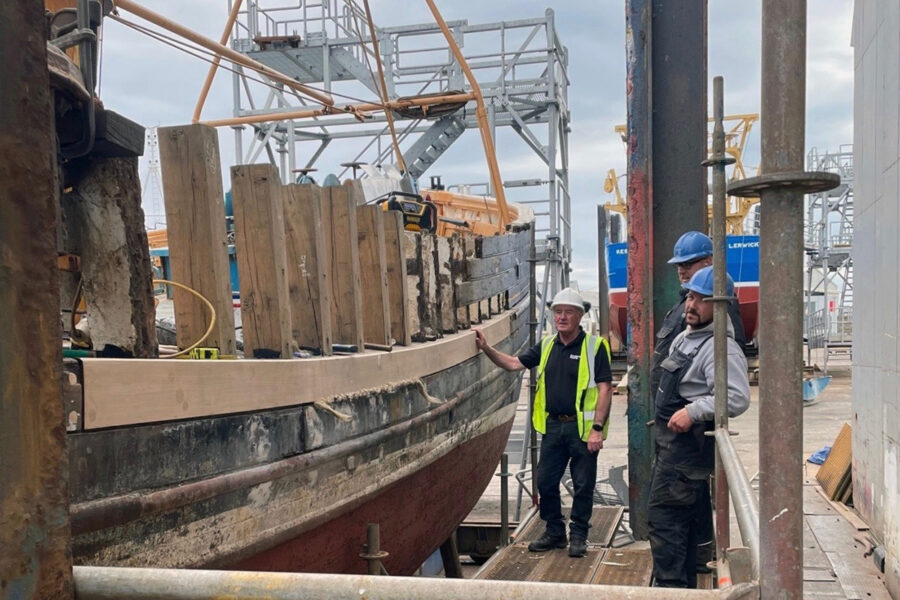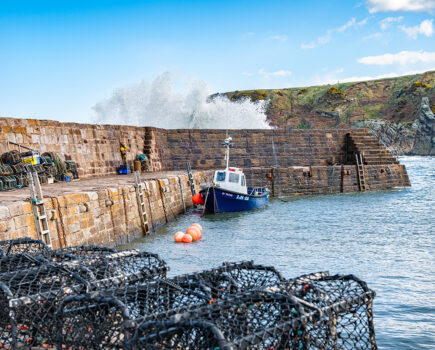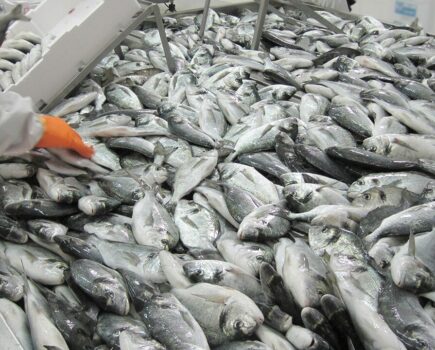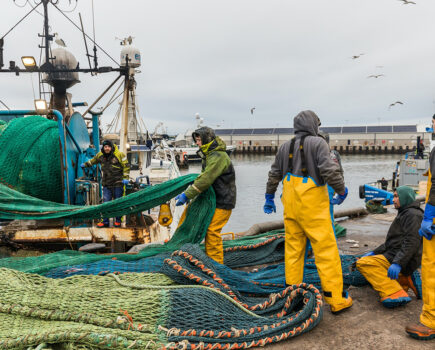“I would have loved to have gone fishing, to be honest,” Alan Ure, risk management surveyor at Sunderland Marine, told Fishing News. “But I used to get horrible seasickness. It was one of my early goals to have been an engineer onboard a boat – but the seasickness put an end to that!”
Instead, and with his feet firmly on dry land, Alan started his career in Stirling as an HGV mechanic. “That was in 1972. I was workshop-based, working on reconditioning engines, gearboxes, fuel pumps – things like that.”
However, the fishing industry still played a pivotal role in the direction of Alan’s career.
“I love fishing. That’s one of my hobbies. Whenever we went to Lossiemouth on holiday, I’d always visit the harbour. I had good friends there too, and through them I started meeting fishermen.
“It was one of the chaps I met there who said: ‘You have the skills to work for marine engineer Henry Fleetwood and Sons.’ I spoke with the two owners Henry and John Fleetwood, and they said: ‘Can you start next week?’”
Alan moved to Lossiemouth and spent the next 21 years with the company, before leaving to join the Scottish Boatowners’ Mutual Insurance Association (SBMIA). “I was asked by an insurance surveyor who was retiring to come down to Buckie and speak with the committee, which I did – and I got the job.”
When in 2017 SBMIA was going out of business, Newcastle-based Sunderland Marine agreed to insure a large proportion of its vessels – presenting Alan with another opportunity. “I was asked by Sunderland Marine if I would come with the vessels, which I did. And I’ve been there since, which is nearly seven years now.”
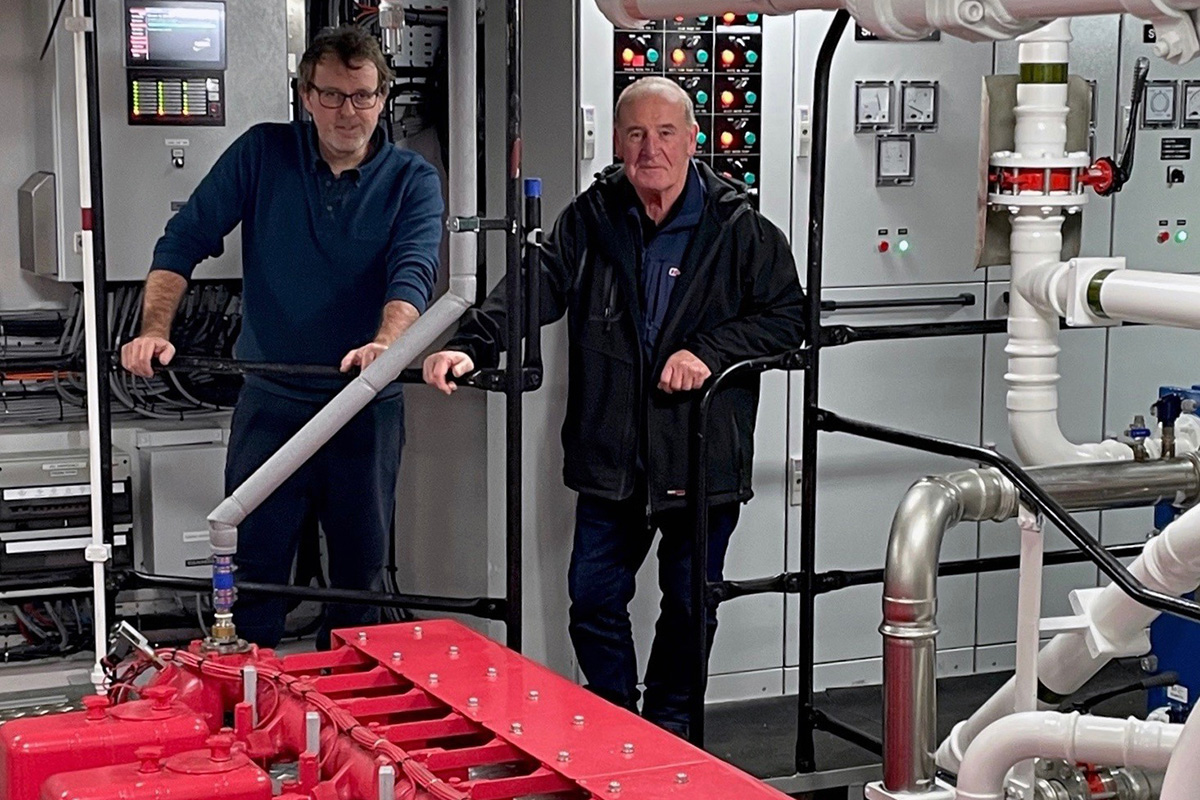
Alan with Whitehills skipper Mark Lovie onboard the new-build Venture IV BF 821 (Fishing News, 26 January, ‘Venture IV: Efficient by design’). “I was getting a look over just before it was taken to sea for the first time,” said Alan. “I was at Macduff Shipyards working one day when the hull was first towed in, so I’ve taken an interest in her build ever since.”
Sunderland Marine, which last year celebrated its 140th anniversary (Fishing News, 30 June, 2022, ‘Sunderland Marine: 140 years of fishing industry heritage’), provides a wide range of insurance services for the commercial fishing industry, including hull and machinery, protection and indemnity, and personal accident insurance.
As a risk management surveyor, Alan’s role is to visit ‘casualty’ vessels – those experiencing damage-related issues. “At the moment I have six jobs on, which I need to try to juggle into place. Four of those jobs are engine-related, one winch-related, and one plank damage to a boat in Mallaig. It’s very, very varied.”
That variation extends to the ports, harbours and shipyards in which Alan finds himself. “I’m basically the Scottish office,” he said. “There’s a fair bit of travelling, but there’s a lot of times when the guys from the head office in Newcastle will join me, where their wide-ranging experience is much appreciated.
“I was in Skye last week with one of the underwriters. We ended up visiting about six boats in one day – just because word of mouth went round, and vessel owners wanted to meet their underwriter, have a cup of tea and discuss their insurance with him.”
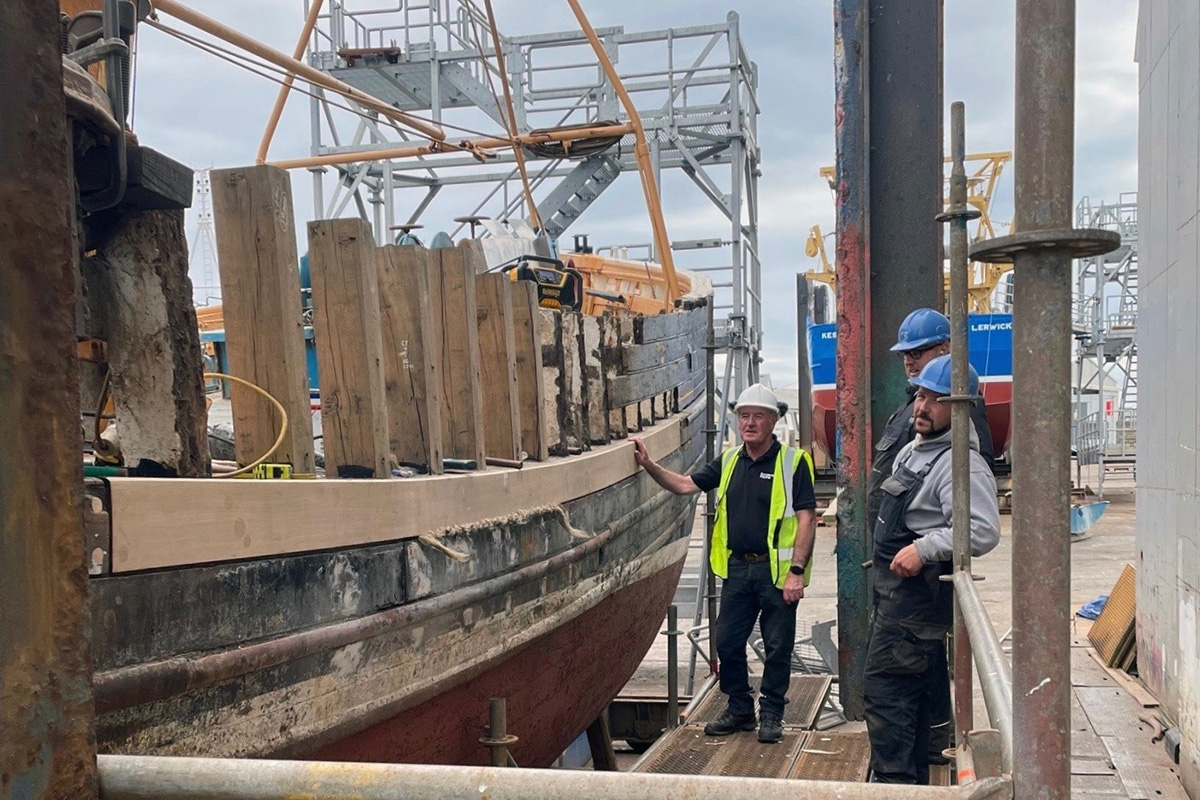
Alan at Macduff Shipyards alongside the 1971 wooden-built Sheigra SY 7. Alan may encounter a vast range of different vessels in his role, but he
says the level of service he provides always remains the same. “To me, everybody is the same, whether you’ve got a 7m boat on the west coast or a 60m purser on the east coast. Everyone is treated the same.”
The distance Alan covers means that planning is an important part of his role. “The engine jobs are in Barra, Fraserburgh, Loch Tarbert and Portree, and the winch job is in Peterhead. What I do first is prioritise. I’ve spoken to all of the vessel owners already to find out how urgent, and how bad, things are.
“I’ll then plan my week. The nature of this business is that there might be another two or three jobs cropping up this week as well. If they do, I’ll just have to factor them in.
“If it’s a basic engine job, I’d normally ask the owners to have the engineers there first, and I’ll speak with the engineers and tell them what I want to see when I arrive. For example, they might have the cylinder head or the sump off by the time I get there so I can see inside.
“We’ll then discuss how far we need to dismantle, and how much needs to be done. The owner is always in charge of what work gets done, but nine times out of 10 they’re looking for an arm around the shoulder and a bit of advice, as obviously they’re very busy themselves.
“The politics involved with fishing now is enough to deal with in the wheelhouse, without having to be an engineer as well. We try and pick up the slack for them, and engage with their engineers and agents to establish the most efficient and cost- effective route to get the vessel back to work.”
With the assessment of a vessel undertaken, and a plan of action in place, Alan’s responsibilities turn to paperwork. “Thursday and Friday last week were spent writing reports. Today will also be paperwork.”
However, it’s through his time on the road that Alan has made the biggest impact, and over the course of his career he has become a familiar, and reassuring, face to many in the industry.
“Ultimately, they see that I’m there to help. Obviously, there are difficult times when things might turn out to be not insured, but we still try our best. That’s one thing that’s always been drummed into me at Sunderland Marine. We’re here to help. We’ll never run away from you.”
This story was taken from the latest issue of Fishing News. For more up-to-date and in-depth reports on the UK and Irish commercial fishing sector, subscribe to Fishing News here or buy the latest single issue for just £3.30 here.
Sign up to Fishing News’ FREE e-newsletter here.

